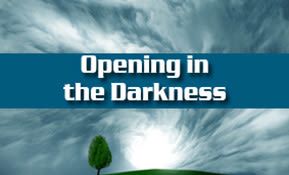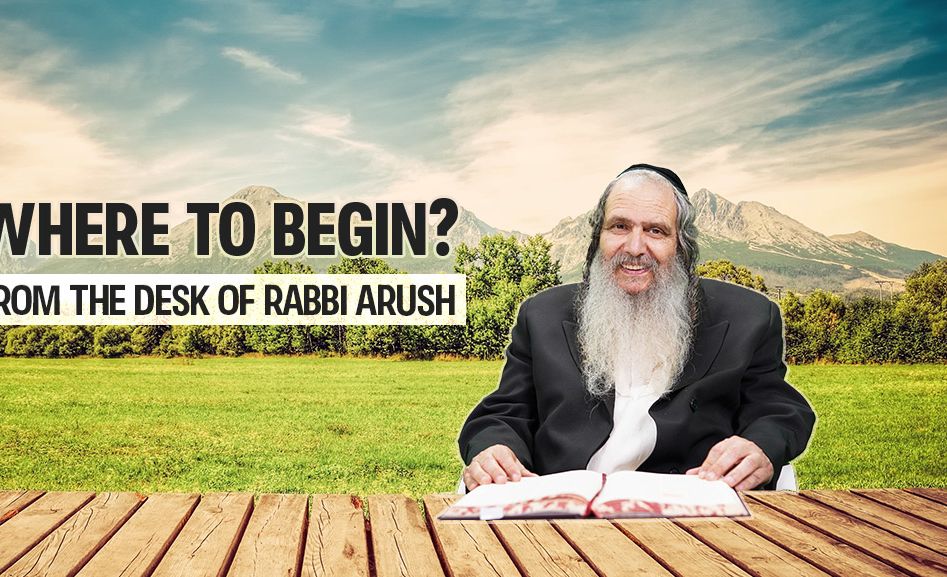
Silent Shouts
Since personal prayer should be intimate, we would no sooner expose our personal prayers than we would any other intimate act. Our conversations with Hashem are private...

Translated by Rabbi Lazer Brody
In Forest Fields, Part 6
In “The Tale of the Lost Princess,” Rebbe Nachman writes (for a complete explanation of Rebbe Nachman’s “The Lost Princess”, see “The Garden of Yearning”, by the author):
“And he saw a path to the side, and he composed himself: I’ve been walking so long in the desert, and I’m unable to find her. I’ll take this path to the side and maybe I’ll reach a settlement…”
Frequently, the hero or main character in Rebbe Nachman’s stories stops and “composes himself” when faced with a major decision. This is indicative of personal prayer, when he appeals to Hashem for guidance. As such, the hero acts out of total self-composure, completely opposite to the type of instinctive reaction that leads to mistakes.
After years of searching for the lost princess, the viceroy decides to leave the beaten path and to take a side path. The path to the side is a metaphor for personal prayer, or hitbodedut.
A path is usually narrow, where one walks alone. The untrodden path to the side is therefore symbolizes one’s individual and personal mode of intimate prayer.
Let’s not underestimate for a single moment the power of the prescribed prayers, Psalms, and supplications, which are all vital for our spiritual health and well-being. But, without personal prayer, one cannot find “the lost princess,” a metaphor for emuna, the full and complete belief in Hashem.
The viceroy evaluated himself and his lengthy trek along the beaten path, in other words, the viceroy realized that despite his years of praying from prayer books with prescribed prayers, he hadn’t yet developed a full and complete faith in Hashem. But, once he pursued his personal path, he found emuna!
Realizing that no prescribed prayer could express his current mood, his process of soul-searching, and his deepest aspirations and thoughts, the viceroy had to turn to personal prayer. He also longed to thank and praise Hashem in his own words. Such a prayer cannot possibly be written anywhere, for it changes from day to day and from hour to hour. This is surely the path that will take him out of the “desert,” indicative of a spiritual wasteland, to a “settlement,” which symbolizes a state when one’s emotions are “settled,” in other words, tranquility and self-composure. With tranquility and self-composure, one attains one’s soul correction and fulfills his or her true mission in life.
Always Fresh
Even though we have general obligations, each person has a specific job to do on earth according to his needed soul correction. Our individual task requires a personal and individual path in life. One cannot possibly find his or her specific individual path successfully without personal prayer. Just as each individual is different, so are personal prayers different from one another. Not only do Susan’s prayers differ from Michael’s prayers, but Michael’s prayers differ from day to day and from hour to hour.
The events in the world around us are Hashem’s way of communicating with us. These stimuli hint to us what we should pray for and how we should talk to Hashem on a particular day.
Since every day is different, and we grow and change from day to day, it’s natural that our prayers from the heart change from day to day. Though many commandments are the same for all of us, such as Sabbath observance or wearing tefillin, personal prayer is our personal and creative spiritual expressiveness that is just as individual as our fingerprints. Personal prayer is always fresh, just like a new day’s sunrise.
Shouting in Silence
No one should ever hear your personal prayers. Some people like to shout, scream, or sing, but they should do so out of earshot of anyone else. Yet, when it’s not possible to find a totally isolated place for one’s personal prayer session, one can rely of Rebbe Nachman’s advice – the silent shout. A person can be sitting in the subway on the way to work surrounded by hundreds of other people, elbow to elbow. Yet, he or she can close their eyes and silently shout to Hashem from deep down in the heart. Such a cry will split the Heavens, yet the person in the adjacent seat won’t hear a thing.

Since personal prayer should be intimate, we would no sooner expose our personal prayers than we would any other intimate act. No one should be privy to our private conversations with Hashem, for as soon as anyone hears us, the prayer is no longer personal.
To be continued.













Tell us what you think!
Thank you for your comment!
It will be published after approval by the Editor.